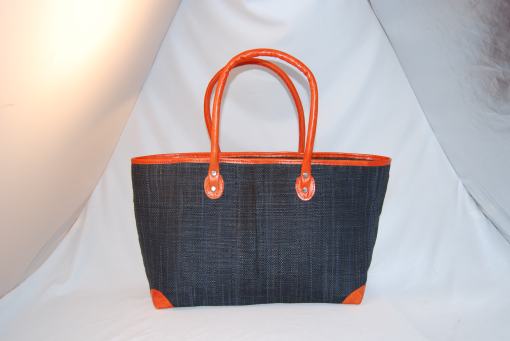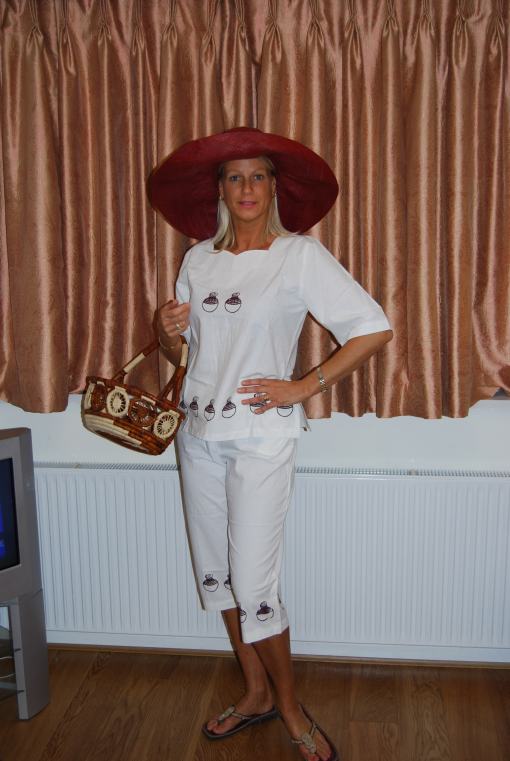Today is 15 October 2009 and Blog Action Day 09 is here! Blog Action day sees bloggers around the world write blogs on an issue that affects humanity and this year the theme is CLIMATE CHANGE
I thought I would add a twist to it by looking at climate change and poverty as I strongly believe that these two go hand in hand in the parts of the world where my work is based.
On the whole the people I work with in East Africa are in rural areas and live off the land. This means that they rely on the land for food and financial security. In a typical village with a woodland and river streams, the trees and land will provide building materials for shelter, fuel and the river will provide water and fish. The trees are cut down both for fuel but also to make charcoal that is sold on mostly to city and town dwellers. They also rely on the land to provide recreation and entertainment!
How I hear you ask, well for a start they grow all the ingredients for fruit juice and alcohol, and again trees and animal hides are used in the making of music instruments. There are no cinemas, theatres, Supermarkets, there is no electricity and they cannot turn a tap on for water. This is their lot!
The other type community I work with are slum dwellers. These are mostly folk that have left the sort of life I have described above to try their luck in the city! They live in the most appalling environment you can imagine and I would argue that the folk in rural setting have a much better quality of life than the slum dwellers. Their environment is littered with plastic bags, stagnant water that attracts malaria causing mosquitoes, they may have electricity but this is unreliable and expensive and therefore the most popular fuel here is charcoal and paraffin. They often cook in the same room they sleep in.
The activities of both these communities are bound to have an impact on climate change through land degradation and activists have started to take action to get folk in these communities to change their ways.
On my last visit to Uganda in May this year I met a coffee grower whose family have grown coffee for 50 years! His entire crop is being threatened by a virus called coffee wilt, the same virus affects banana trees. This is a real threat to his livelihood. Coffee trees need shelter from the harsh African sun and this shelter is provided by the banana trees. The same land is used to grow vegetables such as beans, carrots and potatoes in a system called inter cropping. This means that the household has food security and income from coffee.
One morning old man Hassan had a visit from a government official who requested that he gives up part of his land to plant pine trees in order to help the environment. The pine trees would be provided for free and there maybe a cash incentive too! Old Man Hassan said NO and I asked him why?
I have two daughters due to go to university and that has been possible because of coffee and they are about to cost me more in fees and maintenance for pre=”for “>whislt at university over the next 4 years. How will afford to keep them at University if I cut down the coffee trees and plant Pine instead? furthermore, how will we as a family feed ourselves if we give over the land to Pine growing?
I could see his reasoning, there is no welfare state to take care of his basic needs, he has no hope of accessing AID to help him directly with his priorities as he sees them, should he care about planting more trees for the sake of the environment?
I have recently written about the effects of plastic bags on poverty in the developing world and you can read about that here.
Plastic bags are also the route cause of sewer blockages and this is leads to stagnant water in city slums that attract mosquitoes. Our reaction here in the developed world has been to send mosquito nets. In this CNN report Ozwald Boateng and his colleague Hassan Kimbugwe ask why not get rid of the sewers that provide a breeding ground for mosquitoes?

These slum dwellers have found ways of earning an income and cleaning up the environment at the same time. A project in Burkinafaso sees women collecting plastics bags from their streets and making handbags out of them, whilst the women in Uganda make beads out of paper . These projects are very exciting from the point of view that they provide income for the women but also provide a means of recycling both paper and plastic in countries where recycling is not part of the fabric.
They are some tough questions that remain, one that springs to mind
Can we realistically protect the environment and lift folk out of poverty at the same time?

We here in the west are demanding more recyclable materials such as Sisal and as we can’t grow them the developing world is growing them for us. But did you know that this may involve cutting down forests or woodlands?

As usual if you have a view or thoughts on any of the issues raised here please share them


